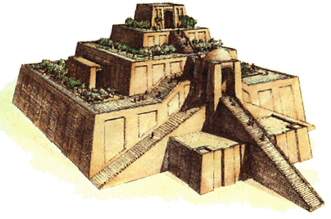Difference between revisions of "Was there a belief in the afterlife in Sumerian religion?"
| Line 3: | Line 3: | ||
Many religions feature an afterlife of judgement. For example, the ancient Egyptians believed "the heart of the dead was weighed in the presence of the jackal-headed Anubis, god of the dead, against a feather, representing Maat, goddess of truth. Balancing the scale meant immortality" (1). However, if your heart was heavier than the feather, you were devoured. Similar beliefs are found in other religion, but the Sumerians believed differently. When one dies, no punishment or reward is administered to them; one simply becomes a wisp of dust that eventually fades into nothing. The Sumerians believed this because their gods occupied the same world we do, and because of this, they could not transport you to a different world (2). | Many religions feature an afterlife of judgement. For example, the ancient Egyptians believed "the heart of the dead was weighed in the presence of the jackal-headed Anubis, god of the dead, against a feather, representing Maat, goddess of truth. Balancing the scale meant immortality" (1). However, if your heart was heavier than the feather, you were devoured. Similar beliefs are found in other religion, but the Sumerians believed differently. When one dies, no punishment or reward is administered to them; one simply becomes a wisp of dust that eventually fades into nothing. The Sumerians believed this because their gods occupied the same world we do, and because of this, they could not transport you to a different world (2). | ||
| + | http://www.crystalinks.com/ziggurat1.gif | ||
Sources: | Sources: | ||
Revision as of 09:26, 2 February 2016
Many religions feature an afterlife of judgement. For example, the ancient Egyptians believed "the heart of the dead was weighed in the presence of the jackal-headed Anubis, god of the dead, against a feather, representing Maat, goddess of truth. Balancing the scale meant immortality" (1). However, if your heart was heavier than the feather, you were devoured. Similar beliefs are found in other religion, but the Sumerians believed differently. When one dies, no punishment or reward is administered to them; one simply becomes a wisp of dust that eventually fades into nothing. The Sumerians believed this because their gods occupied the same world we do, and because of this, they could not transport you to a different world (2).

Sources:
(1) http://legacy.mos.org/quest/afterlife.php
(2) http://www2.sjs.org/beniretto/Mesopotamia/textcomputerexercise.html#SumerianReligion (computer exercises)